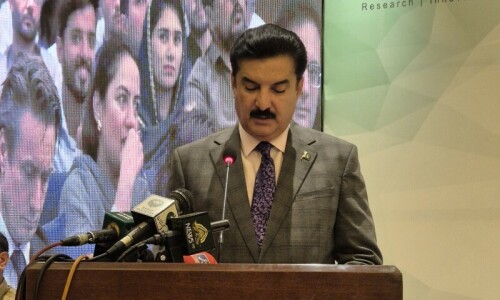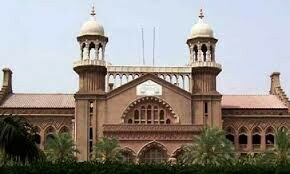Saudi Arabia will always be Pakistan’s friend, says PM Imran
!["Yes, we want OIC to play a bigger role [in the Kashmir issue]. But let me make it clear: Saudi Arabia will always be a friend of Pakistan," said PM Imran. — Al Jazeera screengrab "Yes, we want OIC to play a bigger role [in the Kashmir issue]. But let me make it clear: Saudi Arabia will always be a friend of Pakistan," said PM Imran. — Al Jazeera screengrab](https://i.dawn.com/primary/2020/09/5f50bc541b4e0.png)
Prime Minister Imran Khan on Thursday said that Saudi Arabia would always be a friend of Pakistan despite the government's recent criticism of the Organisation of Islamic Cooperation (OIC) over the Kashmir issue.
"Yes, we want OIC to play a bigger role [in the Kashmir issue]. But let me make it clear: Saudi Arabia will always be a friend of Pakistan," he said in an exclusive interview with Al Jazeera news.
The prime minister was responding to a question about Foreign Minister Shah Mahmood Qureshi's unusually sharp warning in August asking the OIC to stop dilly-dallying on convening a meeting of its Council of Foreign Ministers (CFM) on Kashmir.
In an interview with a private news channel, Qureshi had said if the kingdom failed to summon the meeting, Pakistan would be ready to go for a session outside the OIC.
The Foreign Office (FO) had defended these remarks, saying Qureshi's statement was a reflection of the people’s aspirations and expectations from the OIC to raise the Kashmir issue internationally.
When asked about the lack of international support on the issue in today's interview, the premier replied that Kashmir was a disputed territory between Pakistan and India.
"This disputed territory was taken over by India on August 5, last year by brute force," he said, adding that Pakistan had "knocked on all doors" and would continue doing so.
"If this escalates and if it breaks into a conflict between India and Pakistan, it will have implications for the rest of the world."
However, the reason why certain parts of the world are not responding on the issue, is because they are worried about their commercial interests, he said.
"They look upon India as a huge market, and so they are willing to ignore this huge travesty of justice taking place [in the valley].
"[But] it doesn't mean we will sit down quietly and accept this. We will keep trying."
'Just settlement for Palestinian conflict'
The premier also touched upon the recent deal regarding the normalisation of ties between Israel and the United Arab Emirates.
"Any one-sided settlement which is going to be imposed on the Palestinians is not going to work because the issue will never get resolved.
"Israel is in a very strong position right now, probably the strongest it's ever been. But Israel too must recognise that if they do not allow Palestinians to have a just settlement, the issue is not going to die down."
PM Imran said the issue will just keep "festering" even if some countries recognise Israel as a state. "It's in Israel's interest that there should be a just settlement."
Media freedom
During the interview, the premier was also questioned about a crackdown on the media in Pakistan and intimidation of journalists during his government's tenure.
To this, PM Imran said no other government in the country's history had been a target of such criticism and "blatant propaganda".
"I spent almost 20 years of my life in England. I know what freedom of speech is. If some of the things against me or my ministers had happened in England, we would have claimed millions of dollars in damages."
He added that it was the government and the ministers that were feeling "unprotected", not the media.
Maybe some journalist had claimed that he was picked up for a few hours but in these two years, there is not one instance of intimidation by the state, he said.
"What do they call intimidation? If a person publishes fake news about a prime minister and the prime minister takes him to court, is that intimidation?"
PM Imran added that if the British prime minister had been subjected to the treatment meted out to him, he would be richer by a few million dollars.
"I know what libel cases are. If anything, the pendulum has swung the other way. We need protection."
'Economic future linked to China'
When asked about the status of the China-Pakistan Economic Corridor (CPEC), the premier said Islamabad's relationship with Beijing was "better than ever before".
"Our economic future is linked to China. It [China] is growing at a faster pace than probably any other country and Pakistan can really benefit from the way China has developed [and] the way it has lifted people out of poverty."
However, the premier clarified that that didn't mean Islamabad was re-setting its ties with the United States.
"Why does it have to be either or?" he questioned. "All countries look at their own interests. Why can't we have a good relationship with everyone?"
He added that Pakistan had the "best relationship" with the US right now as the two were partners in peace in Afghanistan. "I don't see it as either China or the United States."














































